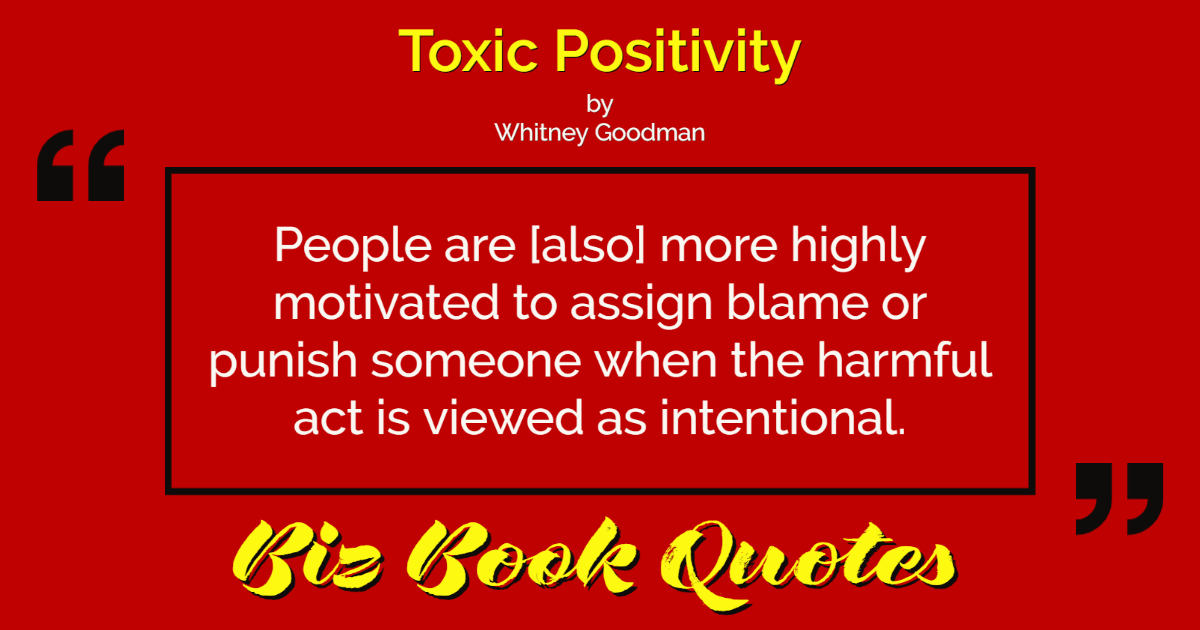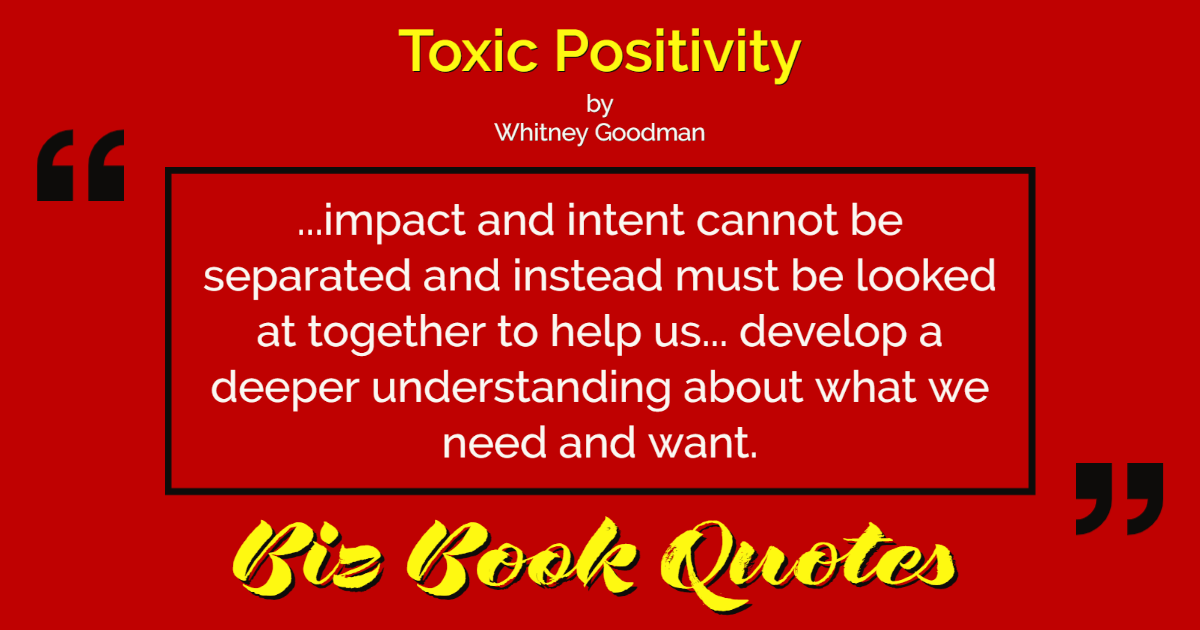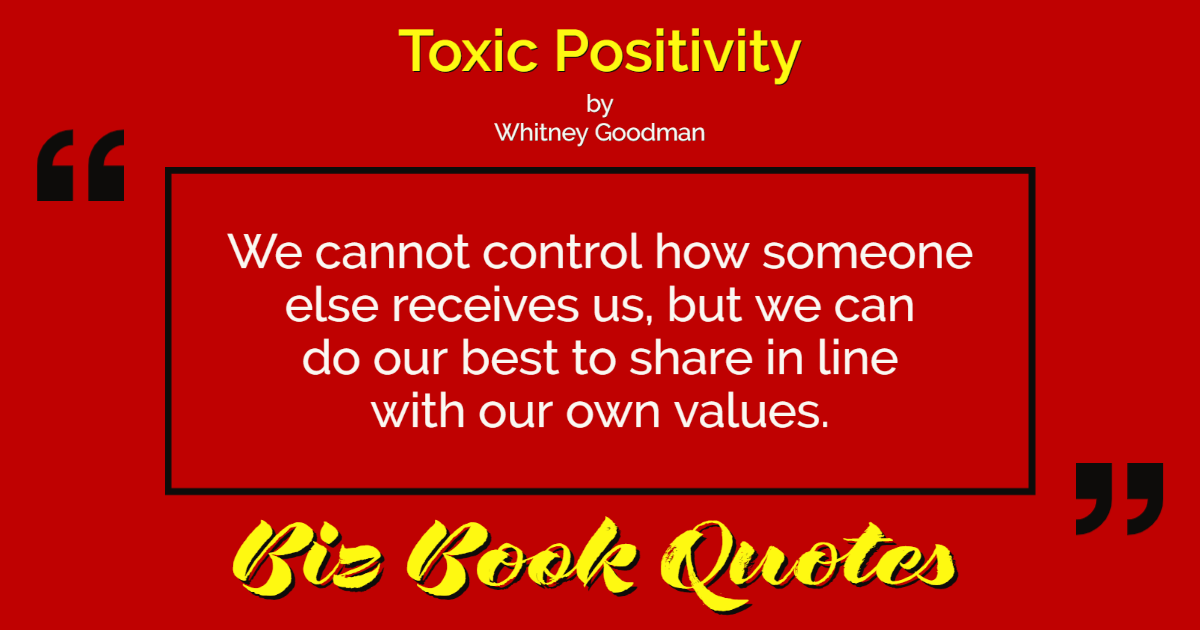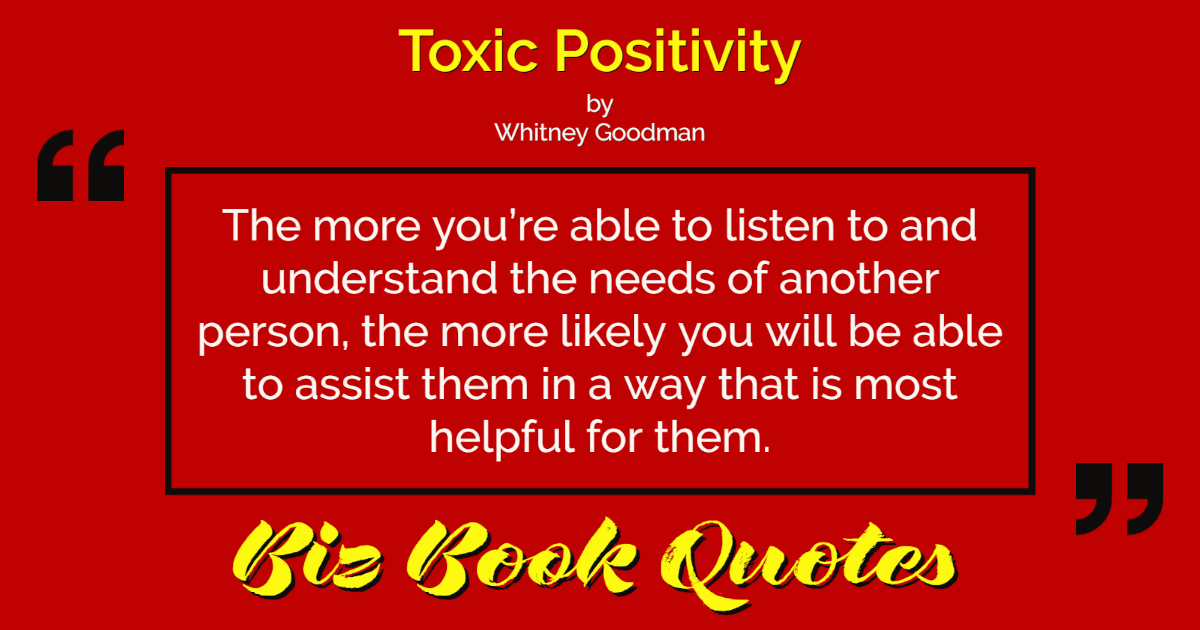|

|
Toxic Positivity:
People are [also] more highly motivated to assign blame or punish someone when the harmful act is viewed as intentional.
|
194 |
|

|
Toxic Positivity:
…impact and intent cannot be separated and instead must be looked at together to help us… develop a deeper understanding about what we need and want.
|
195 |
|

|
Toxic Positivity:
We cannot control how someone else receives us, but we can do our best to share in line with our own values.
|
199 |
|

|
Toxic Positivity:
Curiosity opens the door to understanding, validation, and empathy.
|
200 |
|

|
Toxic Positivity:
…validation is not the same thing as an endorsement. It simply means that you can see how something is possible and recognize it…
|
201 |
|

|
Toxic Positivity:
Validating involves making space to listen and understand how your or someone else feels in their unique experience.
|
202 |
|

|
Toxic Positivity:
Empathy is making space for the feelings, understanding them, and allowing the feelings to exist.
|
202 |
|

|
Toxic Positivity:
If you lead with curiosity and seek understanding, the validation and empathy will flow naturally.
|
204 |
|

|
Toxic Positivity:
The more you’re able to listen to and understand the needs of another person, the more likely you will be able to assist them in a way that is most helpful for them.
|
205 |
|

|
Toxic Positivity:
Being an effective support person really comes down to listening, seeking understanding, validation, empathy, and strong boundaries with yourself and others.
|
209 |











